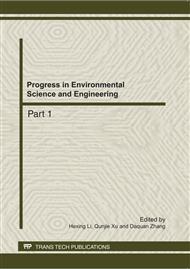p.990
p.994
p.998
p.1009
p.1015
p.1019
p.1023
p.1029
p.1034
Study on Operation Optimal Control of Double Impeller Underwater Aeration Machine
Abstract:
Under water aerator is one of the most important biological wastewater treatment equipments, and it is one of the main power of the sewage treatment plant equipments as well, therefore, effects of aeration is good or bad just as oxygenation capacity is good or bad that is the main basis for the under water aerator . In this paper fuzzy control theory and frequency control principle are used to research running method of the double-impeller underwater aerator and by the demand for dissolved oxygen in water through the aerator variable frequency control, the aerator is controlled to adjust the operating speed, so that to achieve energy savings.
Info:
Periodical:
Pages:
1015-1018
Citation:
Online since:
October 2011
Authors:
Price:
Сopyright:
© 2012 Trans Tech Publications Ltd. All Rights Reserved
Share:
Citation:


